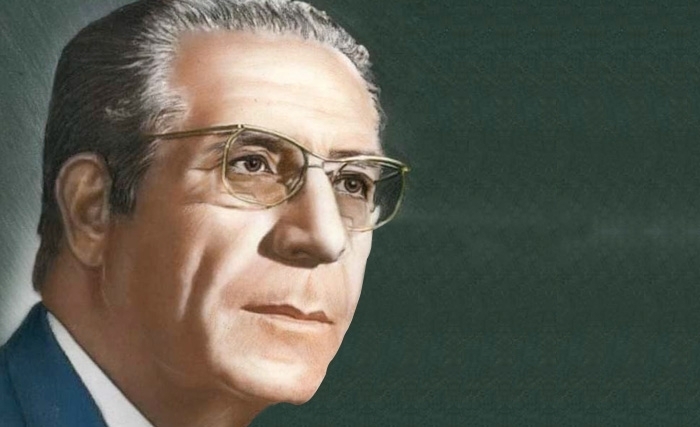Hedi Amara Nouira was born in Monastir in April 1911 and was trained as a lawyer. In 1934, he assisted Habib Bourguiba establish the Neo-Destour Party, a radical branch of the nationalist Destour Party. In the 1950s, the party campaigned for independence, and Nouira served as its representative in Paris.
After the country gained independence from France in March 1956, he served as Finance Minister and was the first governor of Tunisia’s central bank.
Back then, the newly independent country’s lawmakers appointed Bourguiba prime minister, and he became president after the monarchy was officially abolished the following year. He ruled as a monarch for three decades, securing a 1974 revision of the Constitution that made him president for life and confirmed Nouira as his chosen successor.
Throughout the 1970s, as Habib Bourguiba’s health and mental capacity worsened, he progressively assumed control of the country’s daily operations. Considered the architect of Tunisia’s economic renewal in the 1960s, Nouira was criticized in the 1970s by workers for the government’s harsh labor policies and attacks on labor union headquarters.
During his tenure, the economy thrived, and double-digit growth was achieved, which validated him in his roles and kept him in the prime minister’s office for ten years.
Hédi Nouira was an expert in both international history and modern economics. He had a thorough understanding of the territory and the Tunisians, the vast majority of whom desired central rule and resisted any form of excess. He wanted Tunisia to become the Singapore of Africa. He knew how to build his credibility, his authority, and his leadership. He was rationally liberal, socially-minded, pragmatic, and realistic in his perspective.
He restored confidence in the coutnry economy by his speeches, way of action, and personal commitment. State, employers, and UGTT initiate a session of social discussions every three years in order to provide greater visibility and less uncertainty for businesses and ensure social peace. Salaries and productivity go hand in hand. That was the policy.
Hédi Nouira knew where to lead the country and how to lead reform. He said what he did and did what he said, despite the danger of alienating strong supporters of social and economic progress. It revived the economy in so few years and put it on an Asian-style growth orbit, with yearly growth peaks exceeding 17%. His ten years in office will be remembered as the “ten glorious ones” in the country’s history. He rebuilt the state’s coffers and created more jobs and income than in the previous decade. He sought to bring Tunisia to the top of Africa. This ambition inspired the birth of the Tunisian dream.
After El Hedi Nouira’s stroke in February 1980, he was replaced by then-Education Minister Mohammed Mzali, who practically became the President’s heir apparent. In November 1987, however, Interior Minister Zine al-Abidine Ben Ali overthrew Bourguiba in a coup and claimed the presidency.
source/content: carthagemagazine.com (headline edited)
__________

___________
TUNISIA